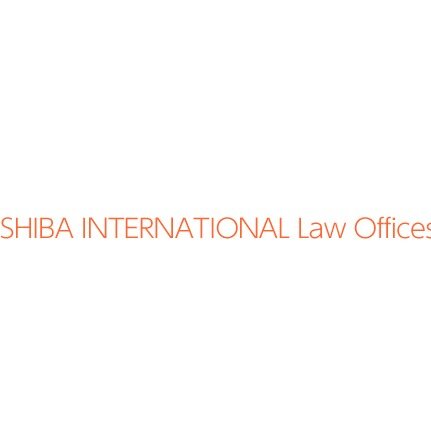Best Banking & Finance Lawyers in Tokyo
Share your needs with us, get contacted by law firms.
Free. Takes 2 min.
List of the best lawyers in Tokyo, Japan
About Banking & Finance Law in Tokyo, Japan
Tokyo, Japan, stands as a major international financial hub, home to a myriad of international banks, investment firms, and financial service providers. The city's financial sector is characterized by a robust regulatory framework designed to ensure market stability, investor protection, and financial integrity. Banking & finance law in Tokyo encompasses a range of activities, addressing everything from banking operations, investment protocols, lending agreements, to securities and currency transactions. These laws are primarily governed by an intricate web of local regulations and are influenced by global financial standards. As Tokyo continues to thrive as a financial center, understanding the rules and regulations governing the sector is crucial for both corporations and individuals involved in financial activities.
Why You May Need a Lawyer
Legal assistance may be required in various situations within the banking & finance sector in Tokyo. Common scenarios include:
- Establishing a Business: When starting a new business or entering into partnerships, legal counsel can help navigate the regulatory requirements for banking and finance operations.
- Contract Disputes: Disputes over financial contracts, such as loan agreements or investment terms, often require specialized legal assistance.
- Compliance Issues: Ensuring adherence to local compliance and regulatory standards is critical, particularly with anti-money laundering and data protection laws.
- Investment Advice: Legal advisors can provide guidance on the complexities of investing in Japanese financial markets.
- Mergers & Acquisitions: Legal oversight is crucial during merger and acquisition transactions to ensure compliance with financial regulations.
- Fraud Investigations: Consultation with legal professionals is often necessary when investigating financial fraud or misconduct.
Local Laws Overview
Tokyo's banking and finance legal landscape is shaped by a combination of national and regional laws. Key aspects include:
- The Banking Act: Regulates banking operations and the establishment of financial institutions.
- The Financial Instruments and Exchange Act (FIEA): Governs securities transactions, including trading and securities firms' activities.
- The Payment Services Act: Encompasses regulations related to electronic payment services and digital currency transactions.
- The Trust Business Act: Addresses trust operations and registration requirements for trust entities.
- The Anti-Money Laundering and Combating the Financing of Terrorism Laws: Standards aimed at preventing financial crimes.
Frequently Asked Questions
What are the main regulatory bodies overseeing banking and finance in Tokyo?
The principal regulatory bodies include the Financial Services Agency (FSA), the Bank of Japan (BOJ), and the Ministry of Finance (MOF). These entities are responsible for regulating financial markets and institutions.
Can foreigners open a bank account in Tokyo?
Yes, foreigners can open bank accounts in Tokyo, although requirements may vary by bank. Necessary documentation typically includes a residence card, proof of address, and personal identification.
What should I know about taxation in the banking sector?
Banking tax regulations include corporate tax, consumption tax, and taxes specific to financial transactions. Consulting with a tax expert is advisable to navigate these complexities.
How do regulations affect fintech companies in Tokyo?
Fintech companies are subject to regulations under the Financial Instruments and Exchange Act and the Payment Services Act, which guide operations related to electronic payment and digital currencies.
Are there specific laws for digital currencies in Tokyo?
Yes, the Payment Services Act provides a legal framework for digital currencies, outlining the registration and operational requirements for currency exchange businesses.
What protections are in place for consumers in financial services?
Consumer protection is enforced through laws that require transparency, fair dealing, and provide mechanisms for dispute resolution.
How does the legal system handle banking disputes?
Banking disputes may be resolved through arbitration, mediation, or litigation, depending on the complexity of the case and the parties' preferences.
What are the penalties for non-compliance with banking regulations?
Penalties can range from fines to license revocations, depending on the severity of the misconduct and the regulations breached.
How is confidentiality maintained in banking transactions?
The Banking Act mandates strict confidentiality and data protection, ensuring that customer information is secure.
Can legal issues in banking affect credit ratings?
Yes, unresolved legal issues or non-compliance can adversely affect a company's or individual's credit ratings, impacting their ability to obtain financing.
Additional Resources
For more information on banking and finance regulations, the following resources can be helpful:
- Financial Services Agency (FSA): Provides guidelines and announcements related to banking and finance.
- Japan Bankers Association (JBA): Offers resources and news relevant to the banking sector.
- Ministry of Finance (MOF): Oversees fiscal policy, including regulations affecting financial institutions.
- Japanese Chamber of Commerce and Industry: A platform for networking and business support in Tokyo.
- Tokyo Metropolitan Government: Offers assistance for businesses navigating local regulations.
Next Steps
If you require legal assistance in banking and finance in Tokyo, start by consulting with a legal professional specializing in this sector. Consider these steps:
- Research Qualified Lawyers: Look for lawyers with expertise in banking and finance law.
- Schedule Consultations: Arrange consultations to discuss your specific needs and legal options.
- Review Qualifications and Experience: Evaluate the lawyer's background, experience, and client feedback.
- Seek Referrals: Consider recommendations from professional organizations or business contacts.
- Clarify Costs and Fees: Discuss pricing structures and ensure transparency regarding legal fees before proceeding.
By following these steps, you can ensure that you receive informed and specialized assistance tailored to your banking and finance needs in Tokyo.
Lawzana helps you find the best lawyers and law firms in Tokyo through a curated and pre-screened list of qualified legal professionals. Our platform offers rankings and detailed profiles of attorneys and law firms, allowing you to compare based on practice areas, including Banking & Finance, experience, and client feedback.
Each profile includes a description of the firm's areas of practice, client reviews, team members and partners, year of establishment, spoken languages, office locations, contact information, social media presence, and any published articles or resources. Most firms on our platform speak English and are experienced in both local and international legal matters.
Get a quote from top-rated law firms in Tokyo, Japan — quickly, securely, and without unnecessary hassle.
Disclaimer:
The information provided on this page is for general informational purposes only and does not constitute legal advice. While we strive to ensure the accuracy and relevance of the content, legal information may change over time, and interpretations of the law can vary. You should always consult with a qualified legal professional for advice specific to your situation.
We disclaim all liability for actions taken or not taken based on the content of this page. If you believe any information is incorrect or outdated, please contact us, and we will review and update it where appropriate.
Browse banking & finance law firms by service in Tokyo, Japan
Tokyo, Japan Attorneys in related practice areas.
















